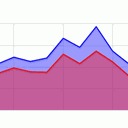
Count per Day free WordPress plugin
Description
- count reads and visitors
- shows reads per page
- shows visitors today, yesterday, last week, last months and other statistics on dashboard
- shows country of your visitors
- you can show these statistics on frontend per widget or shortcodes too
“Count per Day” counts 1 visit per IP per day. So any reload of the page do not increment the counter.
Languages, Translators
- nearly up to date translations:
- Bulgarian – joro – http://www.joro711.com
- Chinese – Siyuan Tang – http://mopbear.com
- Finnish – Jani Alha – http://www.wysiwyg.fi
- German – Tom – http://www.tomsdimension.de
- Japanese – Juno Hayami – http://juno.main.jp/blog
- Persian – Mahmoud Zooroofchi – http://www.zooroofchi.ir
- Portuguese – Beto Ribeiro – http://www.sevenarts.com.br
- Russian – Ilya Pshenichny – http://iluhis.com
-
Serbian – Diana – http://wpdiscounts.com
-
older, incomplete translations:
- Azerbaijani – Bohdan Zograf – http://wwww.webhostingrating.com
- Belarusian – Alexander Alexandrov – http://www.designcontest.com
- Dansk – Jonas Thomsen – http://jonasthomsen.com
- Dutch NL – Rene – http://wpwebshop.com
- Espanol – Juan Carlos del Río –
- France – Bjork – http://www.habbzone.fr
- Greek – Essetai_Imar – http://www.elliniki-grothia.com
- Hindi – Love Chandel – http://outshinesolutions.com
- Italian – Gianni Diurno – http://gidibao.net
- Lithuanian – Nata Strazda – http://www.webhostinghub.com
- Norwegian – Stein Ivar Johnsen – http://iDyrøy.no
- Polish – LeXuS – http://intrakardial.de
- Romanian – Alexander Ovsov – http://webhostinggeeks.com
- Swedish – Magnus Suther – http://www.magnussuther.se
- Turkish – Emrullah Tahir Ekmekçi – http://emrullahekmekci.com.tr
- Ukrainian – Iflexion design – http://iflexion.com
Arbitrary section
Shortcodes
You can use these shortcodes in the content of your posts to show a number or list
or in your theme files while adding e.g. ‘’.
To use the shortcodes within a text widget you have to add ‘add_filter(“widget_text”, “do_shortcode”);’ to the ‘functions.php’ of your theme.
[CPD_READS_THIS]
[CPD_READS_TOTAL]
[CPD_READS_TODAY]
[CPD_READS_YESTERDAY]
[CPD_READS_LAST_WEEK]
[CPD_READS_THIS_MONTH]
[CPD_READS_PER_MONTH]
[CPD_VISITORS_TOTAL]
[CPD_VISITORS_ONLINE]
[CPD_VISITORS_TODAY]
[CPD_VISITORS_YESTERDAY]
[CPD_VISITORS_LAST_WEEK]
[CPD_VISITORS_THIS_MONTH]
[CPD_VISITORS_PER_MONTH]
[CPD_VISITORS_PER_DAY]
[CPD_VISITORS_PER_POST]
[CPD_FIRST_COUNT]
[CPD_POSTS_ON_DAY]
[CPD_CLIENTS]
[CPD_COUNTRIES]
[CPD_COUNTRIES_USERS]
[CPD_REFERERS]
[CPD_FLOTCHART]
[CPD_MOST_VISITED_POSTS limit=”5″ days=”30″ postsonly=”1″ posttypes=”posts,pages”]
– limit (optional): max records to show, default = all
– days (optional), show last x days
– postsonly (optional), 1 = don’t show index pages
– posttypes (optional), show this posttypes only, sets postsonly to 1
[CPD_POSTS_ON_DAY date=”2010-10-06″ limit=”3″]
– date (optional), format: year-month-day, default = today
– limit (optional): max records to show, default = all
[CPD_MAP width=”500″ height=”340″ what=”reads”]
– width and height: size, default 500×340 px
– what: map content – reads|visitors|online, default reads
[CPD_SEARCHES days=”14″ limit=”20″]
– days (optional), show last x days
– limit (optional): show x most searched strings
Functions
You can place these functions in your template.
Use
getReadsAll(true);
?>
to check if plugin is activated.
show( $before, $after, $show, $count, $page )’
- $before = text before number e.g. ‘
’ (default “”)
- $after = text after number e.g. ‘reads’ (default ” reads”)
- $show = true/false, “echo” complete string or “return” number only (default true)
- $count = true/false, false will not count the reads (default true)
- $page (optional) PostID
‘count()’
- only count reads, without any output
- ‘show’ call it
‘getFirstCount( $return )’
- shows date of first count
- $return: 0 echo, 1 return output
‘getUserPerDay( $days, $return )’
- shows average number of visitors per day of the last $days days
- default on dashboard (see it with mouse over number) = “Latest Counts – Days” in options
- $return: 0 echo, 1 return output
‘getReadsAll( $return )’
- shows number of total reads
- $return: 0 echo, 1 return output
‘getReadsToday( $return )’
- shows number of reads today
- $return: 0 echo, 1 return output
‘getReadsYesterday( $return )’
- shows number of reads yesterday
- $return: 0 echo, 1 return output
‘getReadsLastWeek( $return )’
- shows number of reads last week (7 days)
- $return: 0 echo, 1 return output
‘getReadsThisMonth( $return )’
- shows number of reads current month
- $return: 0 echo, 1 return output
‘getReadsPerMonth( $return )’
- lists number of reads per month
- $return: 0 echo, 1 return output
‘getUserAll( $return )’
- shows number of total visitors
- $return: 0 echo, 1 return output
‘getUserOnline( $frontend, $country, $return )’
- shows number of visitors just online
- $frontend: 1 no link to map
- $country: 0 number, 1 country list
- $return: 0 echo, 1 return output
‘getUserToday( $return )’
- shows number of visitors today
- $return: 0 echo, 1 return output
‘getUserYesterday( $return )’
- shows number of visitors yesterday
- $return: 0 echo, 1 return output
‘getUserLastWeek( $return )’
- shows number of visitors last week (7 days)
- $return: 0 echo, 1 return output
‘getUserThisMonth( $return )’
- shows number of visitors current month
- $return: 0 echo, 1 return output
‘getUserPerMonth( $frontend, $return )’
- lists number of visitors per month
- $frontend: 1 no links
- $return: 0 echo, 1 return output
‘getUserPerPost( $limit, $frontend, $return )’
- lists $limit number of posts, -1: all, 0: get option from DB, x: number
- $frontend: 1 no links
- $return: 0 echo, 1 return output
‘getMostVisitedPosts( $days, $limits, $frontend, $postsonly, $return, $posttypes )’
- shows a list with the most visited posts in the last days
- $days = days to calc (last days), 0: get option from DB
- $limit = count of posts (last posts), 0: get option from DB
- $frontend: 1 no links
- $postsonly: 0 show, 1 don’t show categories and taxonomies
- $return: 0 echo, 1 return output
- $posttypes: comma separated list of post types, default: empty to show all
‘getVisitedPostsOnDay( $date, $limit, $show_form, $show_notes, $frontend, $return )’
- shows visited pages at given day
- $date day in MySQL date format yyyy-mm-dd, 0 today
- $limit count of posts
- $show_form show form for date selection, default on, in frontend set it to 0
- $show_notes show button to add notes in form, default on, in frontend set it to 0
- $frontend: 1 no links
- $return: 0 echo, 1 return output
‘getClients( $return )’
- shows visits per client/browser in percent
- $return: 0 echo, 1 return output
‘getReferers( $limit, $return, $days )’
- lists top $limit referrers of the last $days days, 0: get option from DB, x: number
- $return: 0 echo, 1 return output
‘getMostVisitedPostIDs( $days, $limit, $cats, $return_array )’
- $days last x days, default = 365
- $limit return max. x posts, default = 10
- $cats IDs of categories to filter, array or number
- $return_array true returns an array with Post-ID, title and count, false returns comma separated list of Post-IDs
‘function getMap( $what, $width, $height, $min )’
- gets a world map
- $what visitors|reads|online
- $width size in px
- $height size in px
- $min : 1 disable title, legend and zoombar
‘getDayWithMostReads( $return )’
- shows day with most Reads
- $return: 0 echo, 1 return output
‘getDayWithMostVisitors( $return )’
- shows day with most Visitors
- $return: 0 echo, 1 return output
GeoIP
- With GeoIP you can associate your visitors to an country using the IP address.
- On options page you can update you current visits. This take a while! The Script checks 100 IP addresses at once an reload itself until less then 100 addresses left. Click the update button to check the rest.
- If the rest remains greater than 0 the IP address is not in GeoIP database (accuracy 99.5%).
- You can update the GeoIP database from time to time to get new IP data. This necessitates write permissions to wp-content/count-per-day-geoip directory.
- If the automatically update don’t work download GeoIPv6.dat.gz, extract and rename it to GeoIP.dat and load it to the count-per-day-geoip directory.
- More information about GeoIP on https://www.maxmind.com
Tags:
Author
Plugins Used on
12975 websites
Plugins Folder
count-per-day
Plugins Pricing
Free Plugin









